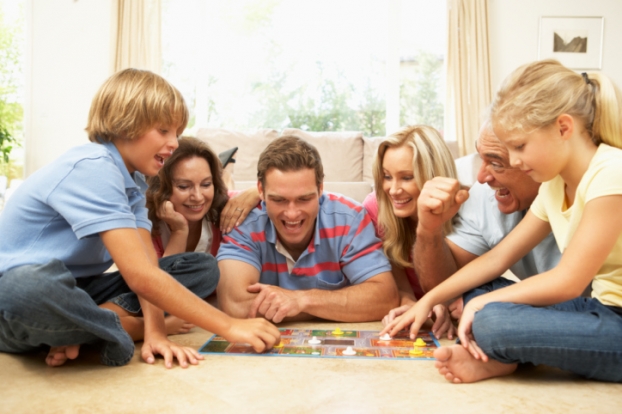
Making resolutions with your children can be fun and exciting, a time for growth and change, and an opportunity for family bonding.
As parents, it's important to practice what you preach. You have to walk the walk and talk the talk to be most effective.
If what you want is for your kids to be out the door earlier, you need to work on yourself. Let's not ask them to do more than we are willing to do.
Start by going over the positive things your kids accomplished last year. Instead of pointing out shortcomings. Point to the bright spot where they're doing something well.
Have them think of things they can do now that they couldn't do last year. Say your 10-year-old taught himself to play a difficult song on the piano. Did that success come about because he pushed himself a little harder` Remind him how far that little bit of extra effort took him. Ask your child, "How can you transfer your success on the piano to something else`"
The big question parents have at this point: Should you make resolutions for your child` Most experts say no. You can guide and suggest general categories for change, help your child clarify goals, and make sure they're age-appropriate, but kids should come up with resolutions themselves. This is how they take ownership of their goals and learn to plan.
Still, most kids need a little guidance. Come up with three or four broad categories -- such as personal goals, friendship goals, helping goals, and school goals -- and let them fill in the specifics.
The important thing is not to end up with too many resolutions. We don't want to teach our kids it's about making a huge list of resolutions and not following through. So help your child narrow them down to a couple of things to focus on.
Take a fresh sheet of paper and have your child write down her top three resolutions, leaving a large space between each one for inserting smaller steps. Help your child make them realistic and age-appropriate.
Be concrete, specific, and manageable. For example, 'I will behave better' is too general and will be out the window fast. Encourage goals that are within their reach, so they don't get discouraged. Some realistic resolutions for kids might be "I'm going to keep my room neater," "I'm going to be a better friend," "I'm going to read more," or "I'm going to get better at tennis." Even these are broad resolutions that need to be broken down into doable, step-by-step pieces.
Take Turtle Steps Toward Big Resolutions. Turning a good intention into a habit is "one of the most important skills we can teach our kids," says Dr. Carter. "It's the key to happiness in life." She suggests that parents help kids break their resolutions down into "ridiculously easy turtle steps." "Self-discipline is like a muscle that grows slowly," she says. "If you do too much at first, you will get fatigued and not be successful."
Dr. Carter says it takes six weeks to create a habit. Once people are engaged in their goal, they will do other things as well." Have your kids fill in the spaces on their big list with these tiny steps .
Check in periodically with kids on how they're doing. "Don't worry about lapses. Expect them. A lapse is forgetting for a day or two, or having a week in which a turtle step didn't work
"Try not to be a big nag about this. If your child isn't making progress on a resolution, "first affirm how hard it is: It seemed like a great idea, but it's not easy to stick to. Ask, 'What's getting in the way for you`' Help them get excited about it again."

